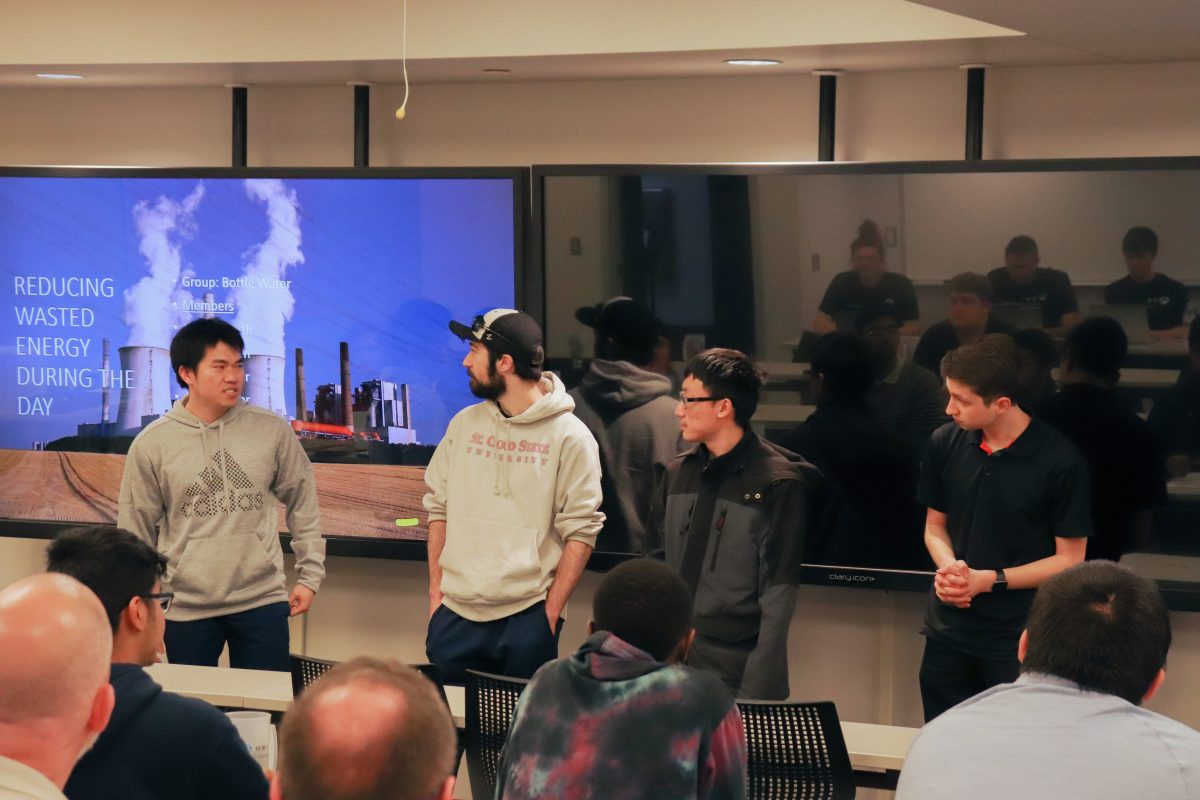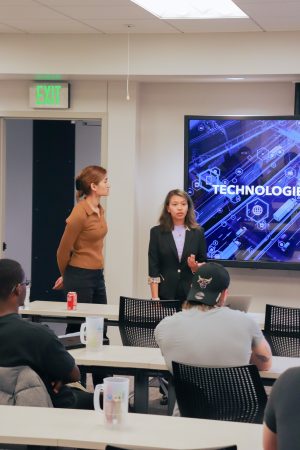
The SCSU Computer Science Club faced a challenge. As a student group, how could they help develop their members’ skills while also promoting the value of computing to their fellow students? Club President Will Munnich had participated in a hackathon in the past and thought this would be a great activity to do at the College of Science and Engineering (COSE). A hackathon is where students work together on an engineering challenge using software and programming to develop a product. Munnich worked with Isaac Olson, COSE’s Experiential Learning and Outreach Director, to identify employers that may be interested in hosting a hackathon.
After a conversation with a represented from Open Systems International (OSI), it was clear that the company was interested in sponsoring a hackathon. OSI is a division of the leading multinational software company, Aspentech, based in Massachusetts. However, OSI’s corporate headquarters are in Medina, Minnesota, west of Minneapolis and just an hour from SCSU. OSI works on software solutions for energy utilities, which would allow students to learn about this growing and rapidly changing sector.

Student’s created their own teams with the event reaching capacity in only two days. The hackathon took place over three days, from April 20-22, with core hours that all teams were expected to be present in COSE’s ISELF building to meet with tech mentors from OSI. A list of challenges were presented at the launch on April 20, then teams begin brainstorming. Teams returned to ISELF on April 21 to work out their ideas with the tech mentors. On April 22, teams were in a mad dash to finish their software solutions by writing and rewriting their code and creating a presentation for OSI judges. Finally, judges congregated with the code reviewers to decide on the winners.
In the end, 50 students on 11 teams presented software products such as EV car charging applications, apps that estimated solar energy potential, an app to trade renewable energy on markets, energy efficiency apps to address varying grid demand, and even a phone app for consumers to minimize food waste.
Three teams took home cash prizes for their innovative solutions, quality coding, and marketable ideas. First-place went to the Code Breakers who created an EV car app where you could book a charge time. The second-place team known as CATS created a tool that used meteorological data to estimate solar panel output in any part of the USA. Rounding out the winners was the third-place team, Codistry, who created a renewable energy trading tool.
OSI was impressed with the work that students were able to do in a short period of time, while also identifying talent for their internship program and entry level positions.
Teams who took home top honors include:
- First place: Code Breakers composed of Maliha Waqar, Jorge Mancilla, Muhammad Arham, Mehtab Singh Khalsa, and Oluwasayo Awoyemi.
- Second place: CATS composed of Ashesh Nepal, Terrance Wallace, Steven Kraus, and Clare Miller
- Third place: Codistry composed of Simangolwa Lifwatila, Mohmammad Aryan Khan, Gilverto De Los Santos Rios, Daniel A Fabresamnd, and Syed Faheel Aziz
